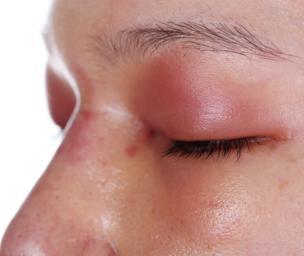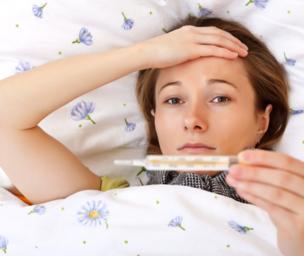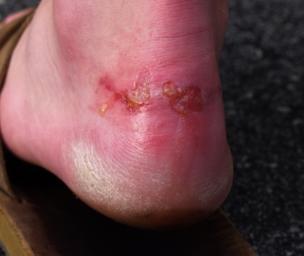How to Treat Sun Poisoning

Sun poisoning refers to a severe form of sunburn that affects about 50% of people between the ages of 20 and 30. In this condition, over exposure to ultra violet radiations cause inflammation of the skin. Sun poisoning can result in permanent damage if not treated. Overexposure to the sun’s radiation may cause severe sunburn, especially if you are not using any form of protection.
Sun Poisoning Symptoms
If you are experiencing these symptoms, listed below, you may be suffering from sun poisoning.
Swelling
Swelling is the most common symptom that can be easily identified. After an extended period in the sun, the body becomes swollen and several areas of the body become red. Sun strokes can increase the swelling.
Headache
Another symptom that can help you identify sun poisoning is the headache. When overexposed to sunlight, the body and the head become heated; thus, leading to headache problems. Headaches of this nature often occur when individuals sit in direct sunlight for an extended period.
Fever and Chills
Being exposed to excessive sunlight can cause a variety of problems. In most cases, after the headache, people will also experience fever and chills. The fever often occurs when an individual is overexposed to sunlight and then cold temperatures shortly thereafter.
Fevers that occur due to sunlight exposure are usually mild in nature.
Skin Redness or Blistering
Exposure to sunlight and other harmful rays can cause skin redness and blistering. It is often seen in individuals spending a lot of time at the beach.
Nausea
Another symptom of sun poisoning is nausea. In fact, most people that experience sun poisoning also experience this symptom. Nausea is caused by excessive exposure to sunlight. This nausea becomes more profound when sunscreen and other protective products are not used.
Dizziness
Dizziness is another symptom which can be used to identify sun poisoning. The dizziness experienced with sun poisoning is often due to the combination of overexposure to sunlight and dehydration.
If you are experiencing dizziness after being in direct sunlight for an extended period, it is recommended that you re-hydrate and rest as soon as possible.
Dehydration
Another major symptom of sun poisoning is dehydration. Dehydration refers to a lack of sufficient fluid in the body. This lack of fluid can cause the body to become weak and fragile. The water content in the body can diminish quickly when exposed to direct sunlight.
Symptoms of dehydration include:
- Increased thirst
- Tiredness
- Dry mouth
- Decreased urine output
- Urine that is abnormally yellowish in color
- Headache
- Dizziness
- Dry skin
Managing the Symptoms of Sun Poisoning
These are some of the ways in which you can properly manage the symptoms of sun poisoning.
Non-Steroidal Anti-Inflammatory Drugs
There are several kinds of non-inflammatory drugs that can be used to help relieve the effects of sun poisoning. These medications act as a pain reliever and can help reduce the pain and discomfort that is experienced with sun poisoning.
Take a Cool Shower
Taking a shower with cool water can do wonders. The body becomes warm and red after excessive exposure to sunlight. Taking a shower with cold water can aid this problem. Gently patting the skin with a cloth dipped in cold water can achieve the same effect.
Apply Cold Compress
The swelling and warmth that occurs with sun poisoning is not always easily relieved by a simple shower. In such cases, using an ice pack on the affected areas can help provide instant relief.
Before applying the ice pack, ensure that you first wrap the pack in a thin towel or cloth to avoid direct contact between the affected areas and the ice pack. Placing the ice pack directly onto the skin can be harsh and cause a lot of discomfort.
Apply Aloe Gel or Moisturizer
Sun poisoning makes the body dry and dehydrated. Using aloe gel or moisturizer on the areas affect by sun exposure can help restore moisture to the skin and provide some relief. Drinking plenty of water can help replenish the body’s fluids; however, treating the skin will still require aloe gel or moisturizer.
Cover Affected Areas When Going Out
Another thing which can be done to counteract the effects of sun poisoning is to cover the affected areas of the body when going out. Doing so ensures that the affected areas are not further exposed to direct sunlight.
Drink Sufficient Water
A sufficient intake of water reduces the risk of dehydration. Drinking plenty of water also reduces the risk of skin dryness. Hydration is very important, especially when staying in the sun for extended periods. Insufficient fluid intake can lead to dehydration, which can be dangerous.
If blisters form on the skin, avoid touching or popping them as it may lead to infection later.
When to Seek Medical Attention
One should seek medical attention if the following symptoms are displayed:
- Swelling of the face
- Dehydration
- Blisters on large areas of the skin
- Upset stomach
- Headache and confusion
- Fever
Following preventive measures is the best way to avoid sun poisoning. Remember to apply a broad-spectrum sunscreen with SPF 30 and above about 30 minutes before exposure. Broad spectrum sunscreen provides protection against UVA and UVB rays. If you go swimming, ensure that you reapply the sunscreen every two hours. Sunscreen should always be applied in generous amounts prior to sun exposure.
Use sun-protective accessories such as hats and sun glasses. Limit exposure to the sun during peak hours. If you are currently taking medications that cause your skin to be more sensitive to the sun, then try to avoid sun exposure as often as possible. Some of the medications that have this affect include acne medicines, antidepressants, heart medications, diuretics, birth control pills, and certain antibiotics.
Bottom Line
These preventative measures, if followed properly, can help prevent the development of sun poisoning. Issues such as facial swelling, dehydration, upset stomach, fever, and headaches can be easily avoided by following the preventative measures listed in this article.
If you have had extended exposure to the sun and begin to experience severe symptoms, it is important that you seek medical attention right away. If left untreated, severe sun poisoning can be dangerous.





























